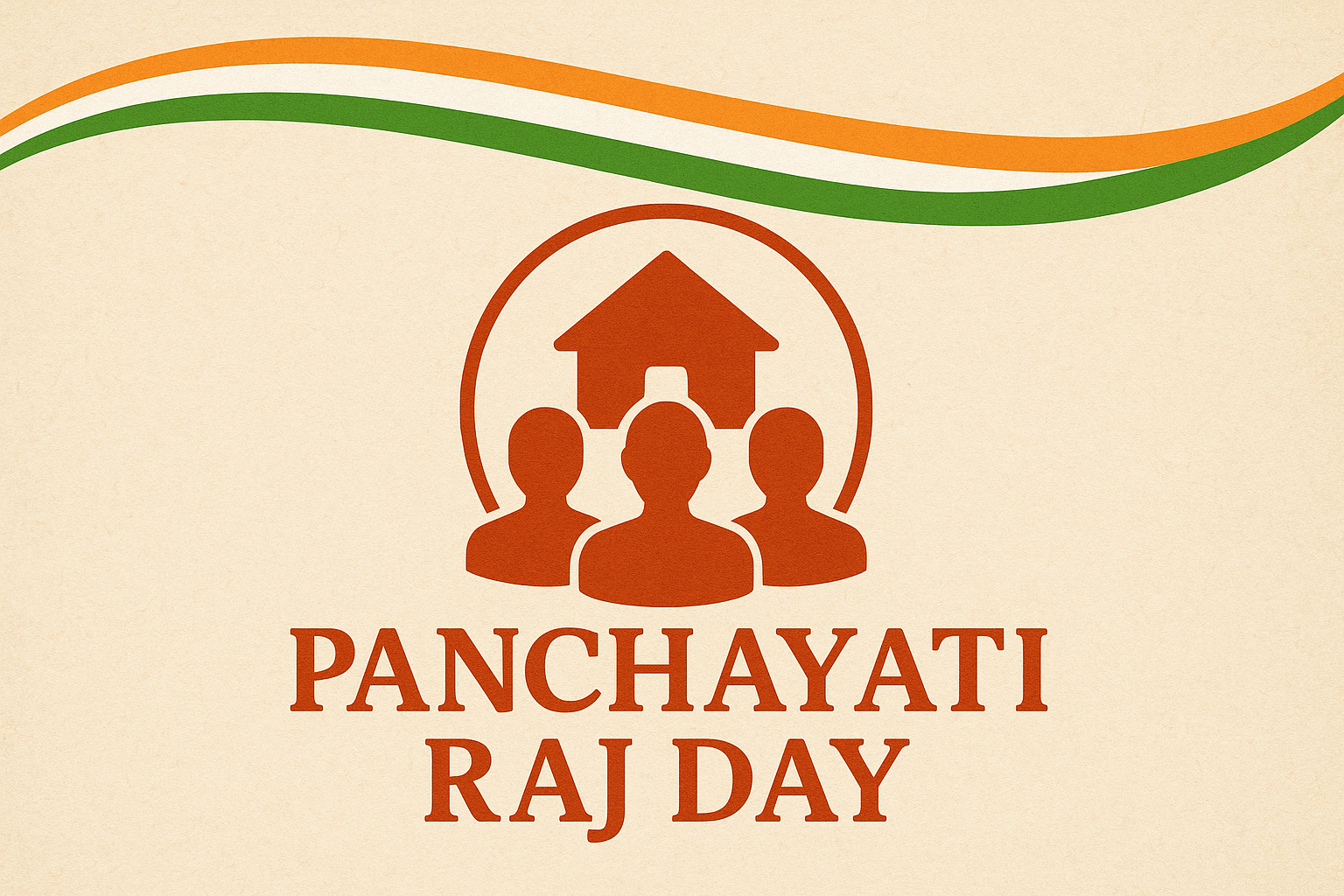National Panchayati Raj Day, observed annually on April 24, is a landmark occasion in India’s democratic calendar. It commemorates the coming into force of the 73rd Constitutional Amendment Act in 1993, which institutionalized the Panchayati Raj system—India’s unique model of local self-governance—across the country. This day is dedicated to recognizing the vital role of Panchayats in promoting inclusive development, social justice, and effective grassroots governance.
Historical Context and the 73rd Amendment
The concept of Panchayat (village council) has ancient roots in India, serving as the basic unit of local administration and community decision-making for centuries. However, after independence, while the importance of Panchayats was acknowledged, these institutions lacked constitutional status, regular elections, adequate representation, and financial resources. This limited their effectiveness and responsiveness as democratic entities.
The turning point came with the 73rd Constitutional Amendment Act, 1992, which came into effect on April 24, 1993. This amendment granted constitutional recognition to Panchayati Raj Institutions (PRIs), established a three-tier system of governance at the village (Gram Panchayat), intermediate (Block Panchayat), and district (Zilla Parishad) levels, and mandated regular elections, reservation for women and marginalized communities, and devolution of powers and finances.
History of National Panchayati Raj Day
The roots of Panchayati Raj in India trace back to ancient times when village councils or Sabhas were integral to rural administration. However, the modern system was formally introduced through the 73rd Amendment Act, which came into effect on April 24, 1993. This act added Part IX to the Constitution titled “The Panchayats,” and also included the Eleventh Schedule, which lists 29 subjects to be devolved to Panchayats.
To honor this significant constitutional development, the Government of India declared April 24 as National Panchayati Raj Day in 2010.
Significance of National Panchayati Raj Day
National Panchayati Raj Day is more than a symbolic observance. It marks a defining moment in India’s journey towards democratic decentralization and empowerment of rural communities. The day is an occasion to:
- Celebrate the institutionalization of grassroots democracy and the historic recognition of Panchayati Raj in the Indian Constitution.
- Acknowledge the contributions of Panchayats in rural development, welfare activities, social justice, and the implementation of flagship government schemes.
- Promote awareness about the importance of decentralized governance for inclusive growth and participatory development.
- Recognize and reward outstanding Panchayats for their achievements in governance, innovation, and service delivery, thereby motivating others to excel.
Structure and Reach of Panchayati Raj Institutions
The Panchayati Raj system is the world’s largest democratic grassroots institution. As of recent data:
- India has about 2.51 lakh Panchayats, including approximately 2.39 lakh Gram Panchayats, 6,904 Block Panchayats, and 589 District Panchayats.
- There are over 29 lakh elected Panchayat representatives, with significant representation of women and marginalized communities, thanks to reservation provisions.
- The 15th Finance Commission recommended a substantial allocation of ₹2,36,805 crore for rural local bodies for the period 2021-26, underlining the importance of PRIs in national development.
Celebrations and Activities
Every year, the Ministry of Panchayati Raj, Government of India, organizes a range of events to mark the day. These include:
- National-level functions attended by the Prime Minister and other dignitaries, where they address Panchayat representatives and functionaries.
- Award ceremonies to honor the best-performing Panchayats across the country, fostering a spirit of healthy competition and innovation.
- Awareness campaigns, quizzes, poster-making contests, and idea competitions to engage citizens and encourage participation in local governance.
- Special Gram Sabhas and discussions on rural development priorities, women’s empowerment, technology adoption, and sustainable livelihoods.
In recent years, the celebrations have also been integrated with broader national initiatives such as the Azadi Ka Amrit Mahotsav, highlighting the role of Panchayats in India’s journey of progress and self-reliance.
Themes and Evolving Priorities
Each year, National Panchayati Raj Day may focus on specific themes reflecting contemporary challenges and priorities in rural governance. While the official theme for 2024 had not been announced at the time of writing, recent focus areas have included:
- Empowering women for inclusive development
- Building resilient villages for climate change adaptation
- Leveraging technology for sustainable livelihoods
- Fostering innovation for rural prosperity.
These themes underscore the dynamic role of Panchayats in addressing emerging issues and driving transformative change at the grassroots.
Impact and Challenges
The 73rd Amendment and the celebration of National Panchayati Raj Day have had a profound impact on rural India:
- Empowerment and accountability: PRIs have become more accountable, transparent, and responsive to local needs, promoting inclusive development and social justice.
- Women’s participation: Reservation of seats for women has led to increased female participation and leadership in local governance, challenging traditional gender roles.
- Decentralized planning and implementation: Panchayats play a crucial role in planning and executing government schemes, ensuring that benefits reach the intended beneficiaries.
Despite these achievements, challenges remain, including the need for greater devolution of powers, financial autonomy, capacity building, and overcoming social barriers to participation. Continuous efforts are required to strengthen PRIs and realize the full potential of grassroots democracy.
Conclusion
National Panchayati Raj Day stands as a testament to India’s commitment to democratic decentralization and rural empowerment. By celebrating this day, the nation not only honors the legacy of local self-governance but also reaffirms its resolve to build a more inclusive, participatory, and equitable society. As Panchayats continue to evolve and innovate, their role in shaping the future of rural India remains more vital than ever

